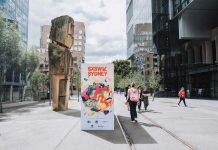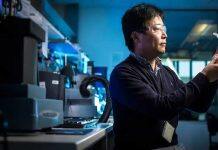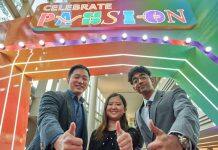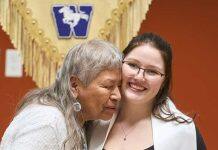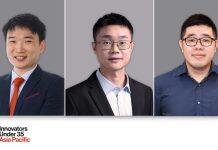Kelvin Kong, Australia’s first Indigenous surgeon, has dedicated his career to early intervention for middle ear disease.


UNSW Sydney alumnus Professor Kelvin Kong has won the 2023 NAIDOC Person of the Year Award. This year’s award finalists were whittled down from 200 nominees.
A Worimi man from the Port Stephens region north of Newcastle, Prof. Kong graduated from UNSW to become Australia’s first Indigenous surgeon. He is now an ear, nose and throat (ENT) specialist in the Hunter region, working at Newcastle’s John Hunter Hospital and John Hunter Children’s Hospital. Prof. Kong regularly travels to remote Australia to provide specialist ENT services to Indigenous patients. This includes visiting the Kimberley each year to perform consultations and surgery.
“This award means a great deal to me because it represents an opportunity. We need to change the narrative and know that we only have to look in our own backyard to recognise all the amazing, beautiful, deadly Aboriginal and Torres Strait Islander people who are doing wonderful things in our communities, including those within the UNSW Alumni community,” Prof. Kong said.
“We need to move away from negative connotations to do with the health and wellbeing of our Indigenous community. We should be proud.
“I also want to acknowledge all the opportunities UNSW has given me as an alumnus. Because someone at the University once upon a time took a risk on a young kid like me, I’ve been afforded so much opportunity to live the beautiful life I do.”
Acting UNSW Vice-Chancellor, Acting Provost – Faculties, and Dean of UNSW Medicine & Health Professor Vlado Perkovic warmly congratulated Prof. Kong.
“Kelvin’s award as NAIDOC Person of the Year is so well deserved. His determination to improve the health and educational outcomes of Indigenous children with both his research and clinical practice in otitis media are highly commendable.
“On top of that, he works hard to improve pathways for Indigenous students to work in medicine and health and as an advocate, empowering communities with information and resources about ear health. We are very proud of him,” Prof. Perkovic said.
Researcher and advocate
The professor complements his clinical practice with ongoing research into the causes and treatment of ear disease. His research focuses on the diagnosis and treatment of otitis media – ‘glue ear’ – in children under three. Otitis media is experienced at higher levels in Indigenous than non-Indigenous communities and it affects as many as 70 per cent of children in remote communities. It can lead to hearing impairment and/or loss, and failure to treat it can have negative impacts on children’s education, childhood development and social outcomes. Prof. Kong is also working on studies of pathogenicity and antibiotic resistance among Indigenous and non-Indigenous trial groups with the hope of informing new treatments.
Prof. Kong is passionate about improving pathways into specialist medical training and improving Indigenous workforce across the health and research sector. He mentors high school students to encourage more Indigenous people to consider careers in medicine and surgery.
While studying at UNSW Medicine & Health, Prof. Kong campaigned for greater recruitment of Indigenous students. He was instrumental in the establishment and ongoing support of the University’s Indigenous Pre-Medicine Program (PMP), which is run through UNSW Medicine & Health in collaboration with Nura Gili Centre for Indigenous Programs.
UNSW’s PMP is one of the oldest alternative pathway programs for Aboriginal and Torres Strait Islanders into a medicine program. When Dr Kong started practising, he was one of only 20 Indigenous doctors nationwide. UNSW Medicine & Health currently has 80 Indigenous undergraduate and postgraduate students enrolled in its programs.


